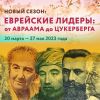Dear Booknik Readers,
Having just returned to Moscow from Jerusalem’s International Book Fair – where the growing number of books on Jewish themes in the Russian language were displayed and available for sale (please see www.knizhniki.ru for a full listing), copies of The Booknik Reader widely distributed; having celebrated a Bar Mitzvah of a colleague’s son at the Western Wall, meetings at the beautiful Jerusalem edifice that bears the name of AVI CHAI in which many creative Jewish activities take place, and participated in presentations and workshops for Russian-speaking Jews in a city whose beauty is difficult to describe – I continue to wonder, why, why is it that this city draws so many to its ancient stones?
I encourage those who have not visited, Jews and non-Jews alike, to do so especially now that visa’s for Russian and Israeli citizens are no longer required. Perhaps once you have a chance to walk its cobblestone streets and visit much of the ancient and the new, feel its beauty within you, the magnificence of a thriving city once thought would be left to the relics of history, you will have your own thoughts. For the moment, allow me to share mine.
A colleague reminds me that her father, a once highly-regarded mathematician whose love for Israel in Soviet times forced him to sweep buildings and clean washrooms, always remembered that for us, as a people, the Jewish State and its meaningful capital is what in Hebrew is called a “zchut” - a merit that we have: each stone, every pebble, each blade of grass infused with Divinity. Though her father was eventually allowed to leave for Israel, perhaps this mathematician’s greatest accomplishment was passing on this fervor to his daughter, who today heads a major Jewish foundation, lives and is in love with Israel. My wife, born in Lipetsk and raised in Sydney, Australia shares these feelings and there is rarely a Shabbat meal in our home where Jerusalem’s meaning is not included as a focus in discussions with our children.
My most recent visit took place at a time when the world around it shook but the city of Jerusalem remained stable. For me, every visit provides energy, hope, a sense of mission; confidence in the possibility of living side by side with our neighbors with respect; a city whose history is filled with difficulty yet provides the most important sign of faith in our future.
Jerusalem is a city of energy, beauty and proof that what seems on the outside to be impossible is, despite all, realistic and possible. A friend’s wife will not take taxis in the city, preferring to walk wherever she can (other than when carrying books bought at the Jerusalem book fair) since she, like my wife, understands the value, meaning, and importance of this beautiful city.
 Meir Shalev and David Rozenson
Meir Shalev and David RozensonAnd while I love other European cities and towns, it is Jerusalem that provides us with that faith, proving by its very existence and growth that the impossible is possible.
Listen to the words of Yehuda Amichai, perhaps Israel’s greatest modern poet. Born Ludwig Pfeuffer in pre-World War II Germany, and having moved with his family to then Palestine in 1935 and to Jerusalem in 1936, he changed his name to one that means “my people lives” and in his words, wrote the following of Jerusalem:
There are other beautiful cities and towns in Israel, all worthy of a visit. But to understand her history, to listen to her message, one must visit and spend time in Jerusalem.
And just one parting thought: there is a song that many Russian Jews would clandestinely sing in communal Soviet kitchens and quietly at family celebrations, perhaps not understanding the translation of the words, but somehow fully aware of the meaning of its melody:
I hope that in the pages of The Booknik Reader you will find descriptions of the events and articles relating to the Book Fair in Jerusalem. And will join me in visiting and praying for the peace of Jerusalem – and all those who surround it everywhere in the world.
David Rozenson
rozenson@clarity.ru












